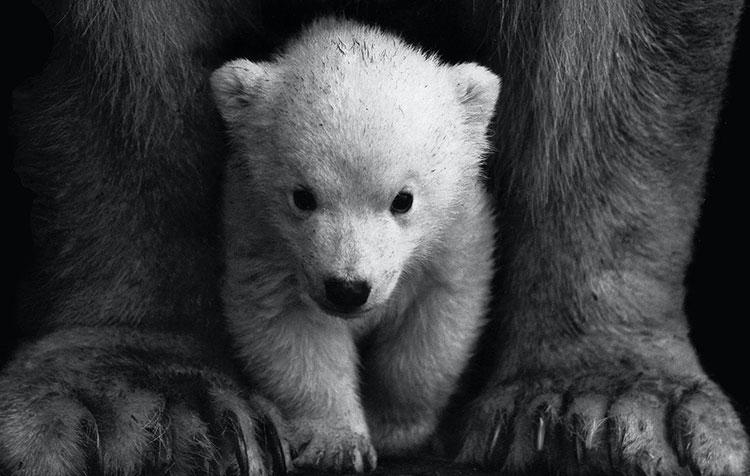You want to know what commonalities connect humans and animals? Then you've come to the right place! Since I have been campaigning for the rights of animals, I often feel how little appreciation many people have for the life of an animal. Many people would like to save endangered species such as polar bears or orangutans - but when it comes to cows, pigs, chickens and other "farm animals" the compassion stops abruptly. "Animals are not human" and we "humans are simply more intelligent" are popular justifications for the exploitation of animals and the unavoidable cruelty to animals. But are we humans and animals really so different?
Whether it's a dolphin, a dog, a cat or a cow - it's the 21st century and it's time to become aware of the similarities between humans and animals in order to give all animals the life they deserve. Here I present you 10 commonalities that will show you how similar we are to our animal friends. Let's go!
Here is in advance a short Overview for you:
- Awareness
- Social life
- Cleanliness
- Intelligence
- Feelings
- Self-awareness
- Diseases
- Voice
- Face recognition
- Will to live
What commonalities connect humans and animals? 10 wonderful examples
Of course, we humans are not exactly like animals. But animals are not the exact opposite of us humans either. We do not differ entirely, but only in degree. Biologically, we humans are even animalsHomo sapiens is defined as a higher mammal from the order of primates and belongs to the family of apes. A DNA comparison between humans and chimpanzees supports this classification. Between 96 and 99 percent of the DNA match.₁
But basically, every animal has a certain thing in common with us humans. Here I would like to introduce you to 10 of them - and I am sure that I can surprise you with one or the other.
1. both experience the world consciously
Just like us humans, animals have a central nervous system₂ and therefore also experience the world quite consciously. They can hear, smell, taste, feel and see and perceive the stimuli from the environment. Many animals can do these things even better than we humans.
Notice: Most people justify their carnality with the argument "Do plants have feelings?". Even though plants are naturally living beings, they do not have a brain according to the current state of research. They only react to light, touch and other external stimuli. But they have no consciousness and do not need it.
2. both maintain a social life
What else do humans and animals have in common? For example, the fact that they maintain an orderly social life. A look at the "Pecking order" of chickens confirms this. In this hierarchy of the community, every chicken knows its place - even friendships are made.₃ Pigs, by the way, also show a very sophisticated, social competitive behavior.₄
3. both are clean
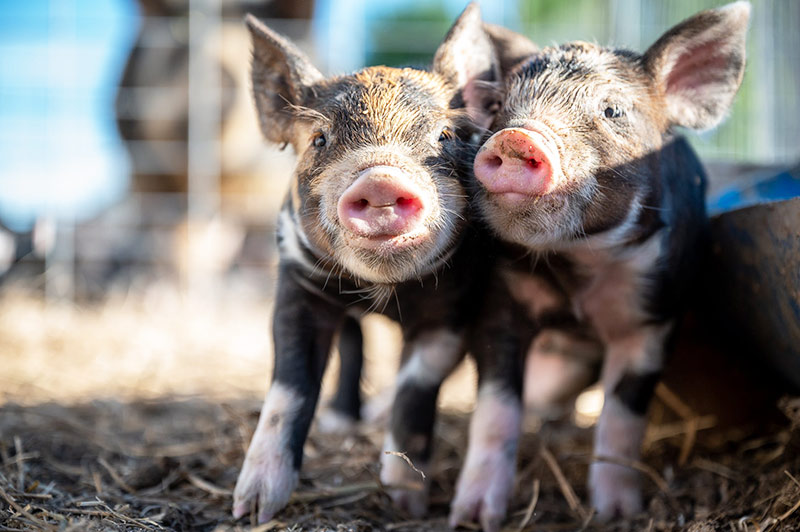
We humans are not the only ones, who like it clean! An example from the animal world? Even if the term "dirty pig" has established itself in the linguistic usage of many people, pigs are totally clean animals. As soon as you are given the opportunity, they take care, for example, not to defecate where they sleep or eat. They usually also have some sort of "toilet corner" that they use.
4. both are intelligent
What do humans and animals have in common? Their intelligence, of course. Vertebrates possess a central nervous systemthat from Brain and spinal cord. Studies have shown, for example, that pigs are even smarter than average three-year-old children.₅ And crows are inventive, gifted with language and able to use tools. There are countless examples of intelligence in the animal kingdom that support this similarity to us humans.
Tip: Also, feel free to read through my post with the tips we People learn from animals can!
5. both have feelings
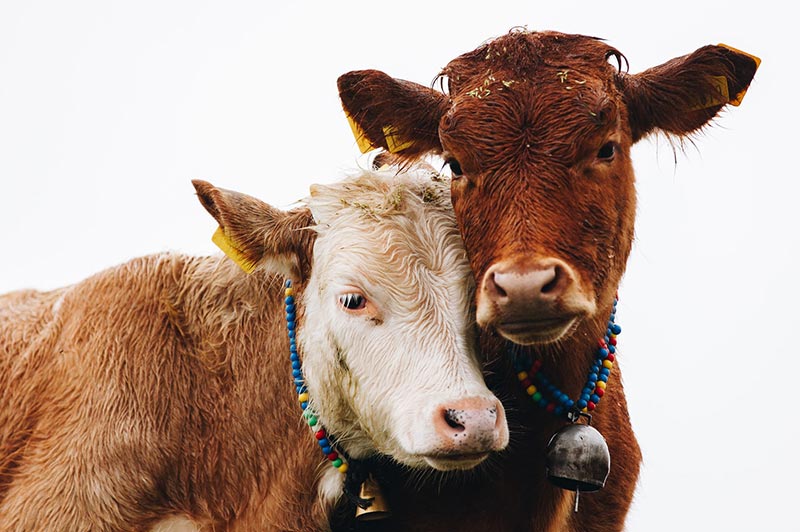
Most know feelings from the animal world certainly from their dogs or cats. In fact, however, almost all animals show that they have feelings like Joy, Fear or also Faithful can feel. For example, many chickens and turkeys like hugs and cows like to listen to music - behaviors that surprise most people. Also moral conduct has already been demonstrated in the form of empathy, emotion contagion, perspective taking, reconciliation after an argument, and sharing and comforting.₆
It is scientifically proven that Animals emotions have. Nevertheless, many people still put animals on the same level as plants.
6. both have a self-perception
Not all, but many animals recognize themselves in the mirror. For example, apes, magpies, dolphins and pigs. They all have the so-called Mirror test passed and shown that you recognize yourself. So the similarities between humans and animals also include self-awareness.₇
7. both develop diseases
Even though I do not want any form of Animal testing reject, the Medicine much diseased animals learn. For example, on the relationship between stress and sudden heart failure, which is common in birds, rabbits and monkeys.
Like humans, animals can also develop food intolerances or allergies. The symptoms are similar, but in dogs, cats or horses, for example, they mainly concern gastrointestinal complaints and the skin.₈
Notice: The cattle disease or the Corona pandemic are a consequence of our treatment of animals. Rethinking this is one of the things, we humans from the covid19 pandemic need to learn.
8. both have one vote
What else connects humans and animals? The voice, of course. By definition, this is the ability to produce sounds and tones through vibrations of the vocal cords in interaction with resonance phenomena. We humans may not be able to directly translate and understand the mooing of a cow or the crowing of a rooster - but still the animals communicate with each other like this. In advocating for the rights of animals in our society - which we humans give them - we must nevertheless give them a "human" voice in order to improve their living conditions.
9. both can remember faces
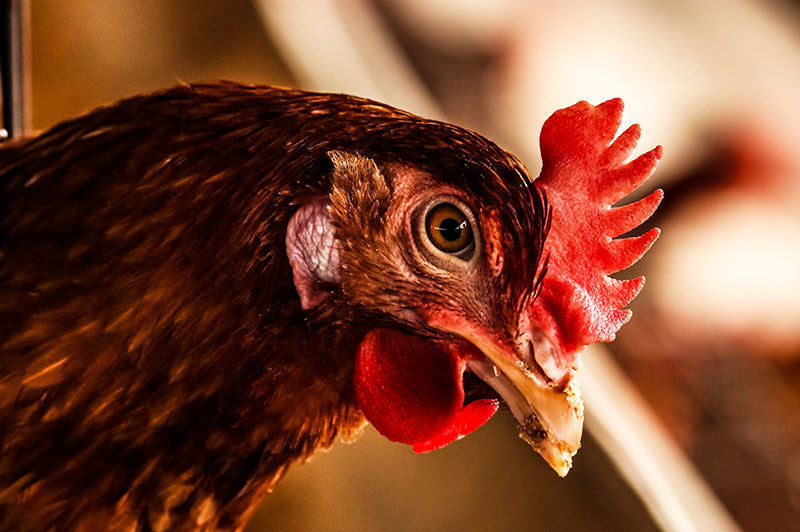
What other similarities do humans and animals have? We're both pretty good at remembering faces and recognizing them. In a study conducted by the University of Cambridge Sheep for example, match the faces of President Obama with an astounding hit rate.₉ Even Crows and Chickens can memorize faces and recall their memories of them. However, the ability to recognize faces applies not only to human faces, but also to faces among animals themselves.
10. BOTH WANT TO LIVE
"All animals know it, except man, that the highest goal of life is joy." - this Animal welfare quote by the former British writer Samuel Butler is representative of another commonality between humans and animals: the will to live. However, the way we humans treat the majority of all animals creates the feeling, that we are quite indifferent to the will to live and the happiness of the animals. In the Factory farming cows, pigs or chickens try to break out of the killing boxes as soon as they smell the blood of their fellow species. Even small fish try to flee from predators like sharks or jump back into the water when they are pulled onto the cutter by fishermen. No human being or animal that consciously experiences our world wants to die voluntarily.
Use the commonalities of humans and animals to treat each other with respect
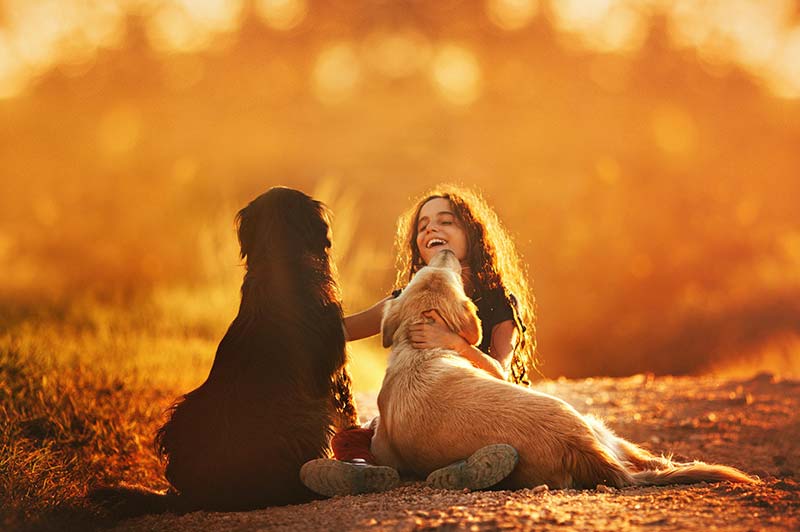
Respectful towards animals - and subsequently more respectful towards other people! Because let's be honest: how big would be the psychological hurdle to harm another human being, if it is already considered reprehensible in our society to harm animals?
We have the power, therefore the choice, and therefore the responsibility. We are in the comfortable position of being able to exploit animals, but should we do so when it is not necessary? Humans and animals have so much in common. We should use the common ground to better put ourselves in the shoes of animals. And think twice about whether it's worth it for a sentient being to pay with his entire life for us to enjoy his body parts for 4 minutes on a sandwich.
Humans and animals are similar in so many of their behaviors and ways of thinking - even though they may differ significantly from us humans in appearance (with fur and feathers). All animals should be treated equally-fairly by us, in order to Speciesism to defeat
Do you have any questions or suggestions? Or can you think of other similarities between humans and animals? Then feel free to write me a comment!
Be always kind to animals,

PS: Today you learned what humans and animals have in common. At animal welfare blog you will get a lot more tips! For example, learn what you do against factory farming in everyday life simply by following your heart.
References:
₁ H. Dambeck: Genetic comparison - chimpanzees and humans almost identical (as of 31.08.2005), https://t1p.de/metg. [12.04.2021].
₂ Toshiyuki Saito (2002): Functional study of the central nervous system for farm animal husbandry, https://t1p.de/azf2. [12.04.2021].
₃ PETA Deutschland e.V.: The chicken - 10 fascinating facts about chickens (as of June 2006), https://www.peta.de/themen/huehner. [12.04.2021].
₄ Hope and Cogen Bohanec (2013): The Ultimate Betrayal, Is There Happy Meat?, https://t1p.de/1qye. [12.04.2021].
₅ E. Petras: Pigs Are Intelligent, http://www.agtiere.de/tierschutz-info/info-schweine. [12.04.2021].
₆ J. Brunke: Moral Behavior in Animals, https://t1p.de/faq7. [12.04.2021].
₇ PETA Deutschland e.V.: Self-perception: These 5 animals recognize themselves in the mirror (as of September 2018), https://t1p.de/d4wc. [12.04.2021].
₈ MTA - DAS PORTAL: Incompatibilities - What humans and animals have in common (as at: 26.08.2017), https://t1p.de/lbe5. [12.04.2021].
₉ University of Cambridge: Sheep are able to recognize human faces from photographs, available at https://t1p.de/12a7. [12.04.2021].

